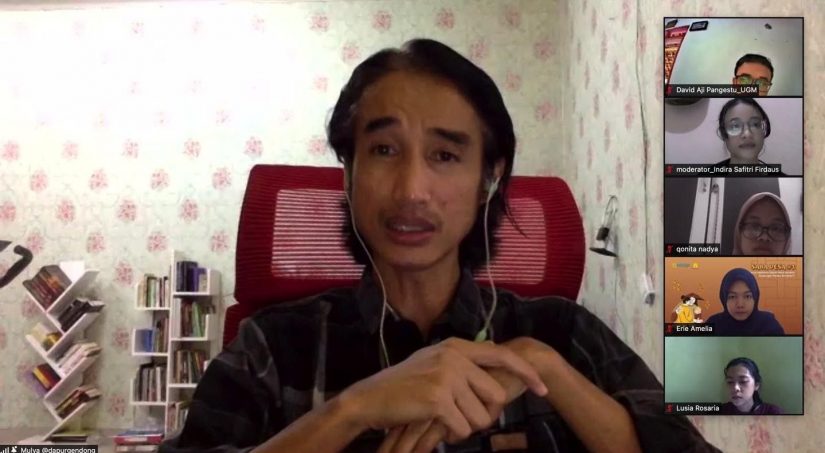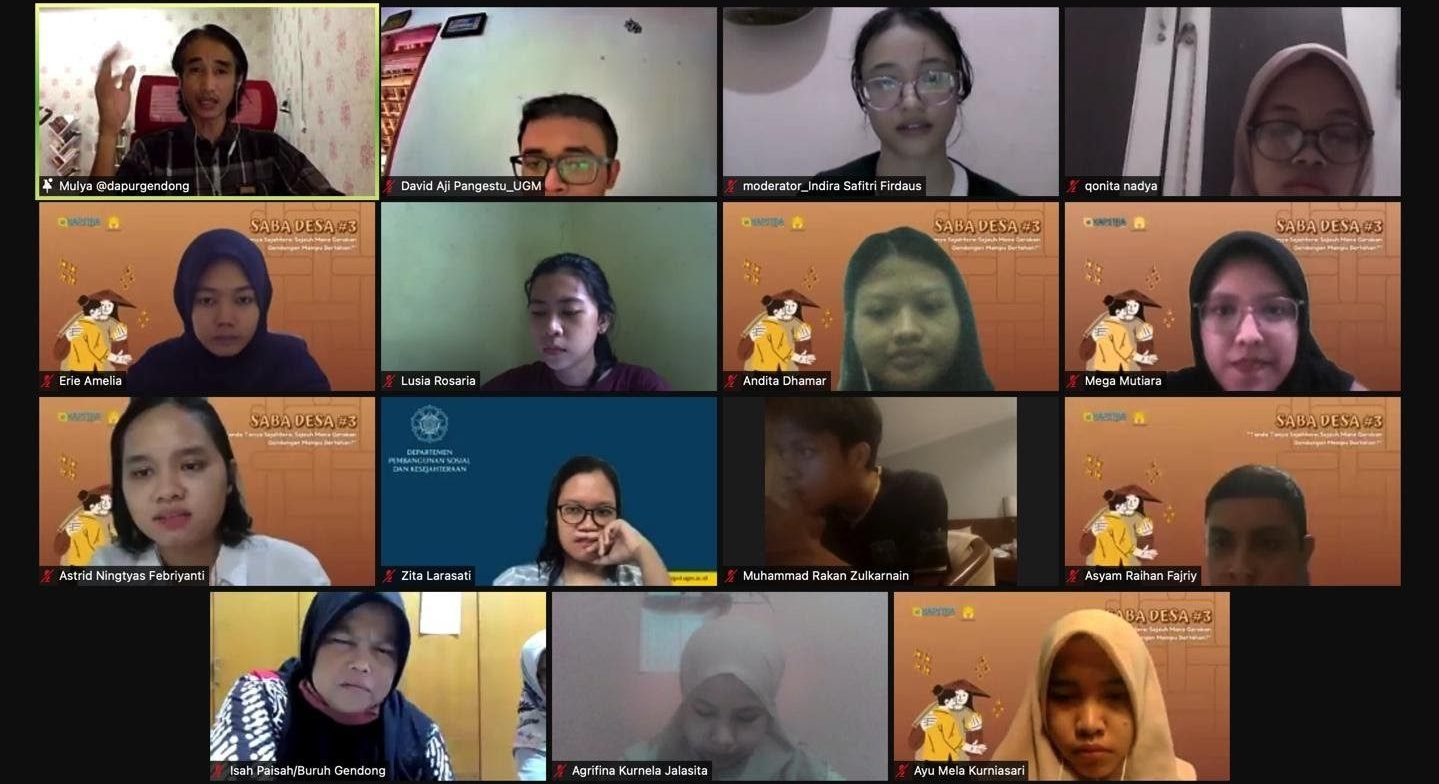
Yogyakarta, December 4th 2021─The Student Council of the Department of Social Development and Welfare (KAPSTRA) Fisipol UGM held the third Saba Desa Webinar through Zoom Meeting on Saturday (4/12). The topic discussed was “Questioning the Welfare: How Long Can Buruh Gendong Last?”. On this occasion, KAPSTRA invited M. Berkah Gamulya (The Initiator of the Public Kitchen For Female Buruh Gendong Jogja), Isah Ponira (Manager of Buruh Gendong Paguyuban Sayukrukun) and Astrid Ningtyas F. (Alumni of PsDK 2017) as the speakers.
The discussion started with a video screening filled with interviews with elderly women who work as a buruh gendong (informal workers who typically work in markets to carry goods). In the video, it can be inferred that the buruh gendong doesn’t get sufficient pay, especially when the pandemic struck. The condition is what leads their welfare to be analyzed which in turn leads to the existence of the Public Kitchen For Female Buruh Gendong Jogja as a way to relieve the economic burden of the buruh gendong.
“We are an example of the social initiative that have arisen in Indonesia since the start of the COVID-19 pandemic, a time when the government of Indonesia does not do their duty which is to ensure the welfare of the people as written in the Social Quarantine Law,” said Berkah, the initiator of the Public Kitchen.
According to Berkah, buruh gendong does not have the privilege to stay at home during the pandemic because then they won’t have any income. They are the marginalized group exploited by local governments under the pretext of preserving local culture, even though the government does not ensure their welfare. For years they have no minimum wage. They only receive around 2-5 thousand rupiah for every lift.
The demanding work and insufficient pay is worse during the pandemic. It came to the point where they can’t even get any job even though they have spent their money for transport to go to the markets. However, their load is relieved through the existence of the Public Kitchen who routinely give away lunches.

“At the start of the pandemic, we didn’t have work at all for two months. But we still go to work because we have no source of income at home. Alhamdulillah we finally got some of our necessities and we now have the Public Kitchen that helped me and my friends a lot,” Isah, the Manager of Buruh Gendong Sayukrukun Paguyuban, said..
Meanwhile, Astrid saw the buruh gendong phenomena under the feminism perspective. Most of the buruh gendong does not have social safety nets such as a health insurance card when they should have one just like any other workers. Therefore, the government needs to see and reassess the condition of the marginalized group so that the government can create policies that accomodate the fulfillment of the rights of the marginalized groups.
“In the context of buruh gendong, the existence of the Public Kitchen can be seen as one of Indonesia’s feminist movement with the aim of unitin communities to ensure economy development as well as an easier life for the workers,” Astrid said.
